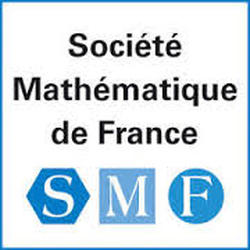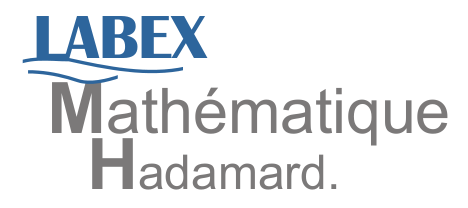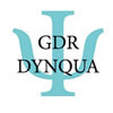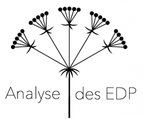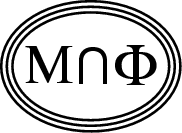RESEARCH SCHOOL / ECOLE DE RECHERCHE
From Quantum to Classical
Du quantique au classique
22 – 26 April 2019
|
Scientific Committee
Comité scientifique Frank Boyer (Université Toulouse III – Paul Sabatier) |
Organizing Committee
Comité d’organisation Stéphane Nonnenmacher (Université Paris-Sud) |
|
This topical school will be part of the “Etats de la Recherche” sessions. Its aim will be to introduce several aspects of the crossover between quantum mechanics (which describes microscopic particles) and effective dynamics closer to “classical physics” (Newton’s mechanics, statistical physics).
This school will be composed of 6 lectures of 3 hours each, which we split into the following 3 themes : – The semiclassical limit of quantum mechanics, and its applications to the spectral theory of Schrödinger type operators. One lecture will address the question of the phase space localization of quantum eigenmodes, in relation with the corresponding classical dynamical. A second lecture will instead apply semiclassical methods to understand fine properties of chaotic dynamics. – The effective description of N-particle quantum systems, in the thermodynamic limit. The aim is to replace the microscopic description (N-body Hamiltonian operator) by an effective macroscopic theory, which takes the form of a nonlinear field theory describing a collective observable. The two lectures will study fermionic systems, among which an electron gas submitted to a strong magnetic field (Quantum Hall Effect). |
Cette école thématique s’inscrira dans le cadre des “Etats de la Recherche” organisés par la SMF. Elle aura pour objectif d’introduire plusieurs aspects du passage entre la mécanique quantique (décrivant des particules au niveau microscopique), et une dynamique effective proche de la physique “classique” (équations de Newton, physique statistique).
Cette école sera composée de 6 cours de 3h, qui s’articuleront en trois thèmes. — La limite semiclassique de la mécanique quantique, et ses applications à la théorie spectrale des opérateurs de type Schrödinger. Un des cours portera sur l’étude de la localisation dans l’espace des phases de modes propres quantiques, en lien avec la dynamique classique sous-jacente. Un second cours portera, inversement, sur les applications de méthodes semiclassiques à l’étude de systèmes dynamiques chaotiques. — Les descriptions effectives de N particules quantiques en interaction, dans la limite thermodynamique (N grand). — La théorie de l’information quantique permet de décrire l’interaction entre deux systèmes quantiques, par exemple le phénomène d’intrication entre les deux soussystèmes. Un cours fournira les concepts de base de l’information quantique. Si l’un des sous-systèmes est un gigantesque “environnement”, on s’attache plutôt à décrire l’évolution effective du “petit” système, qui diffère de l’évolution de Schrödinger. Cette dynamique effective permet de rendre compte du phénomène de décohérence du système quantique, qui fait passer d’un état pur à un mélange statistique . |
- Guillaume Aubrun (Université Lyon 1) – Entanglement as a resource in quantum information theory
We introduce the concept of quantum entanglement, fundamental in quantum physics. We review some basic properties of entangled states (pure and mixed), and explain how entanglement can be used as a resource in quantum information theory. This leads to various measures of entanglement (e.g. entanglement cost, distillable entanglement) to quantify how much entanglement a given system contains.- Yan Pautrat (Université Paris-Sud) – Effective dynamics of open quantum systems, decoherence and indirect measurements
The lecture will describe the effective dynamics of small systems in interaction with an environment and their properties, in particular their asymptotic (in time) behavior. A connection will be given to the theory of indirect measurements and recent results on their behavior
- Frédéric Faure (Université Grenoble Alpes) – Microlocal methods in chaotic dynamics: from classical to quantum
This shows that the problematic of classical chaos and quantum chaos are closely related. Part 2) is from a joint work with J. Sjöstrand. Parts 3) and 4) are from a joint work with Masato Tsujii.
- Gabriel Rivière (Université de Nantes) – Semiclassical behaviour of quantum eigenstates
- Marcello Porta (University of Tübingen) – Mean field dynamics of many-body fermionic systems
- Nicolas Rougerie (CNRS/ Université Grenoble Alpes) – Mathematical topics around fractional quantization
The 1983 discovery of the fractional quantum Hall effect marks a milestone in condensed matter physics: systems of “ordinary particles at ordinary energies” displayed highly exotic effects, most notably fractional quantum numbers. It was later recognized that this was due to emergent quasi-particles carrying a fraction of the charge of an electron. It was also conjectured that these quasi-particles had fractional statistics, i.e. a behavior interpolating between that of bosons and fermions, the only two types of fundamental particles.
These lectures will be an introduction to the basic physics of the fractional quantum Hall effect, with an emphasis on the challenges to rigorous many-body quantum mechanics emerging thereof. Some progress has been made on some of these, but lots remains to be done, and open problems will be mentioned.




